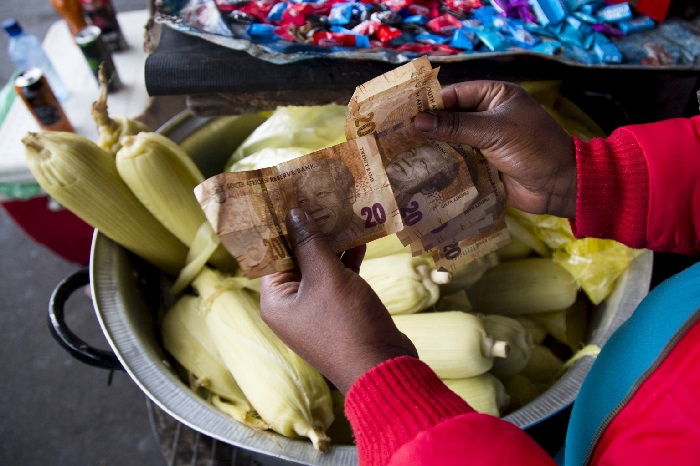The African Union recently announced the creation of a Continental Free Trade Area in Kigali, in what has been termed a historic event.
The heads of 44 African nations signed the bill establishing the Free Trade Area, immediately fast-tracking Africa’s economy by 50 years. However, there is still some more work to be done for the African trade area to be ‘modern’.
Other than the fact that intra-African trade is the lowest among its ilk in the world at 11 percent (which was a reason for the creation of the Free Trade Area), the Continental Free trade area also needs to be digitized.
In a world of high-speed internet, emerging technologies and economies, digital networks and data flow, the traditional boundaries regarding trade will no longer suffice.
Ventures Africa spoke to Microsoft’s Director for Corporate Affairs in Africa Mr. Louis Otieno last week on the sidelines of the Africa CEO Forum in Abidjan, Ivory Coast. He says Africa needs to digitize its Free Trade Area to enable it to incorporate at scale. “Digital data flow is what defines the economic area as opposed to traditional boundaries,” he said. “For Africa to compete globally with the likes of China, we have to incorporate at scale. We have a billion people, which makes us a viable market today, with the youngest billion people, which makes us a viable market tomorrow.”
His solution to digitizing the CFTA is for African governments to initiate policies that would make it easier for data flow across national boundaries. “A heavy investment in cloud computing and infrastructure will enable the Free Trade Area to address the kind of scale a billion people on the continent present” said Mr. Otieno “Good government policies around data privacy and cyber-security, and those that leverage trust in these technologies need to be implemented. Ultimately, policies that allow for data flow across boundaries; a small business in Ghana can be designed to address an opportunity in Cote D’Ivoire.”
Digitization in other trade blocs
The digitization in other trade blocs around the world could undermine the gains made by the African Union. In 2015, the European Union unraveled its Digital Single Market strategy to make Europe more relevant in a global economy that is increasingly becoming driven by technological innovations.
The Digital Single Market would help the EU “improve access to digital goods and services, facilitate the expansion of digital networks and services, and increase the growth potential of the digital economy across Europe.” That growth potential, with the impetus of a digitized single market would be worth 2.5 trillion Euros added to Europe’s GDP by 2025.
Trade within the European Union is already at 70 percent, while it is at 60 percent in Asia. Asia is growing from its cheap labor beginnings to a continent abounding with digital innovations and economies driven by a creative population.
READ MORE:Ghanaian businesses to participate in China’s largest promotional Fair
E-commerce companies like Alibaba have helped facilitate trade across international boundaries and increased employment opportunities. Many of these employment opportunities have come in the shape of Small and Medium Business owners who have leveraged on the use of cross-border trading facilitated by mobile phones.
Opportunities for Africa
And that is where Africa could digitize its single market; there are presently 960 million mobile subscribers in Africa, which amounts to an 80 percent mobile penetration on the continent. However, internet penetration is at 18 percent, meaning there is a potential market for increasing high speed, low cost internet for the rest of Africa, which can easily be facilitated by mobile phones.
Mr. Otieno also explained that there’s a potential market for Africa in its rural areas, “the focus now should be getting African SMEs to grow very quickly through digitization so they can address the opportunities presented by a billion people in rural areas.”
The adoption of digital innovation and infrastructures, like cloud computing, will go a long way in propelling intra-African trade from where it is now, to it competing with other Trade blocs around the world. The African Continental Free Trade Area already has the advantage of being the biggest market; it should go further by adding quality through digitization.
Credit: venturesafrica.com


